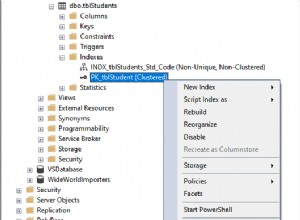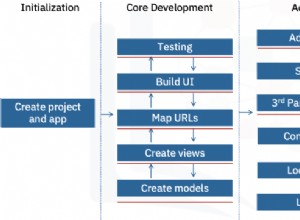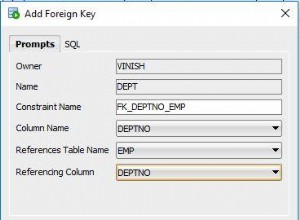Quand je regarde un peu autour de moi, j'ai trouvé LIKE opérateur dans LINQ qui étaient un qui ont quelques bons exemples de la façon dont vous pourriez le faire. J'ai testé celui ci-dessous qui provenait du lien ci-dessus
Voici une extension pour utiliser Like avec lambda qui a été publiée par adobrzyc
public static class LinqEx
{
private static readonly MethodInfo ContainsMethod = typeof(string).GetMethod("Contains");
private static readonly MethodInfo StartsWithMethod = typeof(string).GetMethod("StartsWith", new[] { typeof(string) });
private static readonly MethodInfo EndsWithMethod = typeof(string).GetMethod("EndsWith", new[] { typeof(string) });
public static Expression<Func<TSource, bool>> LikeExpression<TSource, TMember>(Expression<Func<TSource, TMember>> property, string value)
{
var param = Expression.Parameter(typeof(TSource), "t");
var propertyInfo = GetPropertyInfo(property);
var member = Expression.Property(param, propertyInfo.Name);
var startWith = value.StartsWith("%");
var endsWith = value.EndsWith("%");
if (startWith)
value = value.Remove(0, 1);
if (endsWith)
value = value.Remove(value.Length - 1, 1);
var constant = Expression.Constant(value);
Expression exp;
if (endsWith && startWith)
{
exp = Expression.Call(member, ContainsMethod, constant);
}
else if (startWith)
{
exp = Expression.Call(member, EndsWithMethod, constant);
}
else if (endsWith)
{
exp = Expression.Call(member, StartsWithMethod, constant);
}
else
{
exp = Expression.Equal(member, constant);
}
return Expression.Lambda<Func<TSource, bool>>(exp, param);
}
public static IQueryable<TSource> Like<TSource, TMember>(this IQueryable<TSource> source, Expression<Func<TSource, TMember>> parameter, string value)
{
return source.Where(LikeExpression(parameter, value));
}
private static PropertyInfo GetPropertyInfo(Expression expression)
{
var lambda = expression as LambdaExpression;
if (lambda == null)
throw new ArgumentNullException("expression");
MemberExpression memberExpr = null;
switch (lambda.Body.NodeType)
{
case ExpressionType.Convert:
memberExpr = ((UnaryExpression)lambda.Body).Operand as MemberExpression;
break;
case ExpressionType.MemberAccess:
memberExpr = lambda.Body as MemberExpression;
break;
}
if (memberExpr == null)
throw new InvalidOperationException("Specified expression is invalid. Unable to determine property info from expression.");
var output = memberExpr.Member as PropertyInfo;
if (output == null)
throw new InvalidOperationException("Specified expression is invalid. Unable to determine property info from expression.");
return output;
}
}
Pour l'utiliser, vous ajoutez simplement la fonction Like où vous placeriez les fonctions Contient. Vous pouvez voir ci-dessous pour un exemple
using (CustomerEntities customerContext = new CustomerEntities())
{
IQueryable<Customer> customer = customerContext.Customer.Like(x => x.psn, "%1%");
}
Cela créera une requête sql qui ressemble à ceci.
SELECT
[Extent1].[psn] AS [psn]
FROM [dbo].[Customer] AS [Extent1]
WHERE [Extent1].[psn] LIKE '%1%'




